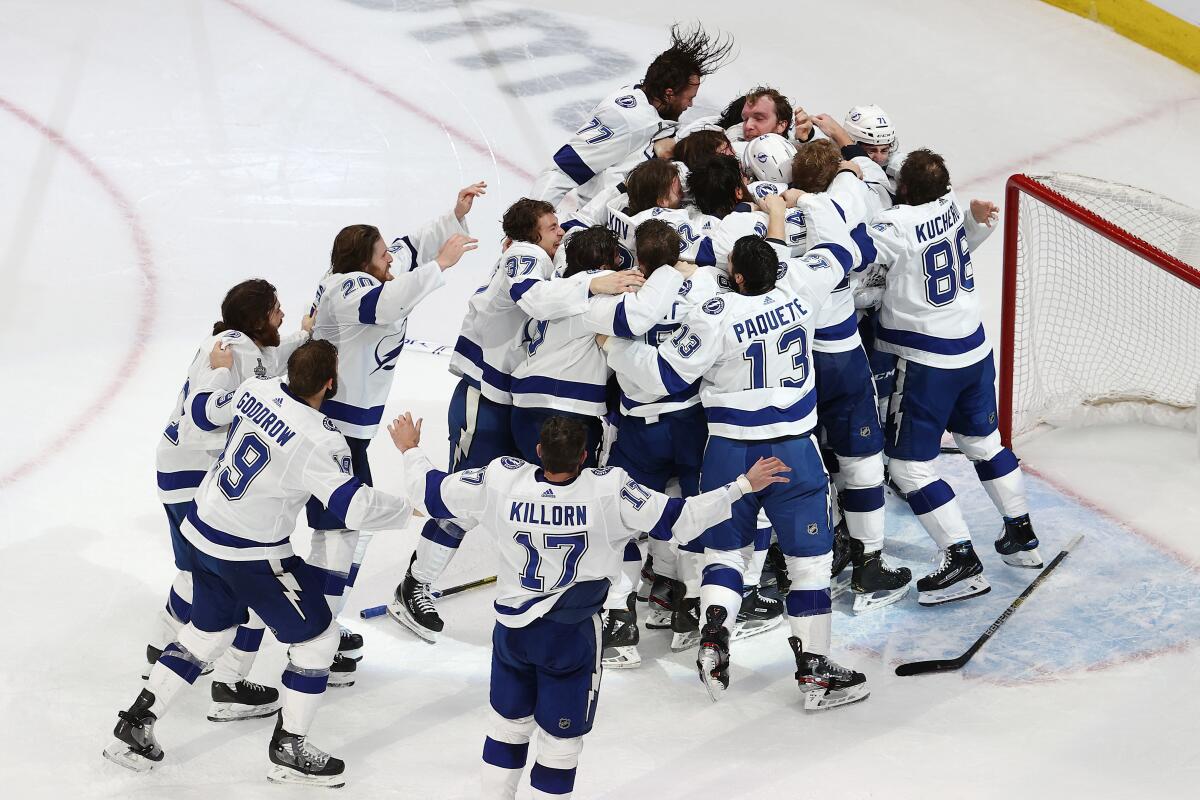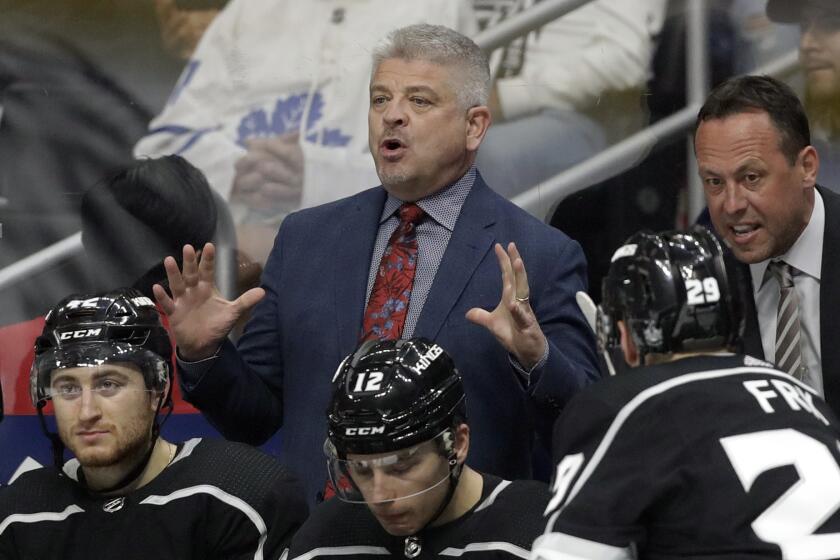NHL, Players Assn. reach tentative agreement on terms for 2020-21 season

The NHL and NHL Players’ Assn. tentatively agreed to begin the pandemic-delayed 2020-21 season on Jan. 13 with each team playing a 56-game schedule solely within one of four temporarily realigned divisions, NHL deputy commissioner Bill Daly confirmed Friday night in a post published on the league’s website, NHL.com.
The post also confirmed that one division will envelop all seven Canada-based teams, freeing them to compete against each other while avoiding severe travel restrictions that currently limit border crossings between the U.S. and Canada. Those restrictions led the NBA’s Toronto Raptors to relocate to Tampa, Fla., this season and sent Major League Baseball’s Toronto Blue Jays to Buffalo to play home games last season.
The top four teams in each of the new divisions will qualify for the Stanley Cup playoffs, according to reports by Canada’s Sportsnet network.
The executive board of the NHLPA was scheduled to discuss the agreement Friday night. The league’s Board of Governors was scheduled to convene via conference call over the weekend.
With the NHL making a number of changes in response to the COVID-19 pandemic, Kings coach Todd McLellan knows this season will be unlike any other.
The NHL said the tentative agreement includes health and safety protocols. Enough other issues, however, remain unresolved to make it possible the opener will be pushed back a few days. The principal issue is securing approval from health officials in the five Canadian provinces that are home to NHL franchises. The province of Ontario recently instituted a lockdown in Toronto, home of the Maple Leafs.
“The NHL and NHLPA have had to adjust to government regulations at all levels, from restrictions at the Canada-United States border to local limits on gatherings, and the coronavirus situation in each of the markets for the 31 NHL teams,” the league’s post said.
The presence of fans in arenas in even limited numbers would be determined by local, state or provincial health policies in each city. Less than a quarter of the NBA’s 30 teams are expected to admit fans when that league opens its season on Tuesday.
As tentatively agreed, training camp will open on Dec. 30 or Dec. 31 for the seven NHL teams that missed the 2019-20 playoffs, a group that includes the Kings and Ducks. Camp for the 24 remaining teams will open on Jan. 3.
The NHL paused the season on March 12 because of the pandemic. It resumed play on Aug. 1 with an expanded field of 24 teams playing in bubbles in Edmonton and Toronto. The Tampa Bay Lightning won the Stanley Cup on Sept. 28 in Edmonton.
Replicating a hub setup remains a possibility for 2020-21, though players reportedly oppose being separated from family for the time necessary to play a 56-game schedule. Players will be allowed to opt out if they have concerns for their health or if they feel they must protect a close family member who is considered at risk of developing a health problem.
There are several reasons why a mint-rated 1979 Wayne Gretzky O-Pee-Chee rookie card sold at auction last week for $1.29 million.
There won’t be any exhibitions. Each team will have a taxi squad of four to six players, in deference to the short preparation time and the possibility the coronavirus might render players unfit to play while mandating isolation of those who came in contact with people who test positive.
The absence of fans in arena will hurt the NHL, which is the most gate-dependent of the four major North American professional leagues. By playing 56 games, however, the league and individual teams will be able to generate vital revenues through TV contracts and in-arena advertisements. There’s precedent for playing a shortened season: Lockouts imposed by Bettman cut each team’s 82-game schedule to 48 games in 1994-95 and again in 2012-13, each time with a mid-January start.
More to Read
Go beyond the scoreboard
Get the latest on L.A.'s teams in the daily Sports Report newsletter.
You may occasionally receive promotional content from the Los Angeles Times.








